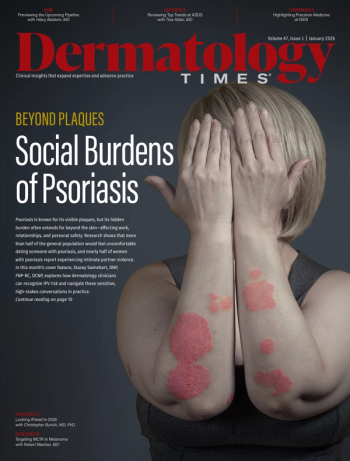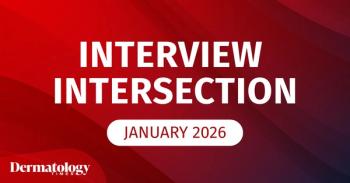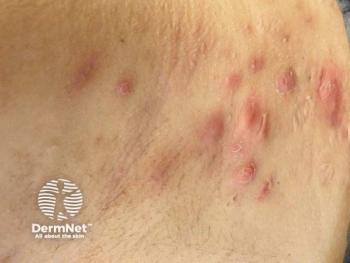Abeona Therapeutics Inc. has announced1 its submission of a Biologics License Application (BLA) to the US Food and Drug Administration (FDA) for Priority Review and approval of its therapy for recessive dystrophic epidermolysis bullosa (RDEB), EB-101.
In July, Abeona announced it had filed a briefing package to the FDA ahead of a pre-BLA August meeting to discuss the acceptability, format, and content of its submission for the investigational autologous, engineered cell therapy.
Key Takeaways
- Abeona Therapeutics has submitted a Biologics License Application (BLA) to the FDA for Priority Review and approval of its therapy EB-101 for recessive dystrophic epidermolysis bullosa (RDEB), supported by positive phase 3 VIITAL study results showing significant wound healing and pain reduction.
- If the BLA is accepted for Priority Review, approval of EB-101 is expected in the second quarter of 2024, potentially making it the first individualized cell therapy option for RDEB patients with long-lasting benefits.
Read more from Dermatology Times on this announcement.
The submission is supported by data from Abeona's phase 3 VIITAL study,2 wherein patients with RDEB were treated with EB-101, and the study met co-primary endpoints of meaningful clinical improvements in chronic, large wound reduction and healing. From baseline to conclusion, 81.4% of patients randomized to received EB-101 treatment achieved a 50% or greater level of wound healing, and the average reduction in pain from baseline to conclusion was greater among patients being treated with EB-101.
Follow-up data demonstrated that EB-101 was both safe and efficacious over an up to 8 year period.3
Currently, EB-101 has received an FDA Orphan Drug Designation, Breakthrough Therapy Designation, Regenerative Medicine Advanced Therapy Designation, and Rare Pediatric Disease designation, as well as a European Medicines Agency Orphan Drug Designation.
If the newly-submitted BLA is accepted for Priority Review, Abeona expects approval of the BLA in the second quarter of 2024.
“The BLA submission for EB-101 is a historic milestone for Abeona and a critical step toward making our investigational EB-101 product an option for RDEB patients as the first individualized cell therapy with potential to provide years of wound healing and pain reduction following a one-time application,” said Vish Seshadri, chief executive officer of Abeona, in a press release from Abeona.1
References
- Abeona Therapeutics submits Biologics License Application to U.S. FDA seeking Priority Review and approval of EB-101 for the treatment of patients with recessive dystrophic epidermolysis bullosa. Abeona Therapeutics Inc. September 26, 2023. Accessed September 26, 2023. https://investors.abeonatherapeutics.com/press-releases/detail/265/abeona-therapeutics-submits-biologics-license-application.
- Abeona Therapeutics announces positive topline results with both co-primary endpoints met in pivotal phase 3 VIITALTM study of EB-101. Abeona Therapeutics Inc. November 3, 2022. Accessed September 26, 2023. https://investors.abeonatherapeutics.com/press-releases/detail/243/abeona-therapeutics-announces-positive-topline-results-with.
- So, J.Y., Nazaroff, J., Iwummadu, C.V. et al. Long-term safety and efficacy of gene-corrected autologous keratinocyte grafts for recessive dystrophic epidermolysis bullosa. Orphanet J Rare Dis 17, 377 (2022). https://doi.org/10.1186/s13023-022-02546-9











